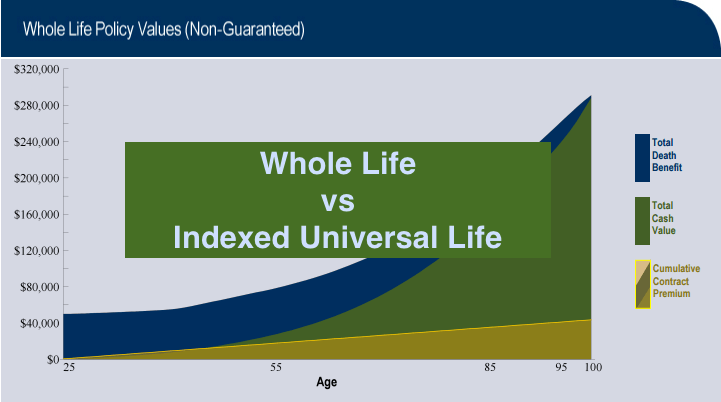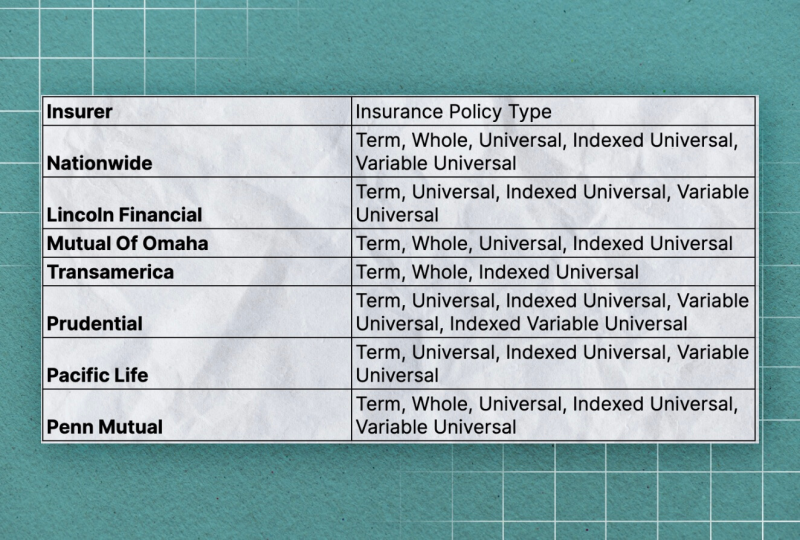All Categories
Featured
Table of Contents
1), frequently in an effort to beat their group standards. This is a straw male argument, and one IUL people enjoy to make. Do they compare the IUL to something like the Lead Total Amount Supply Market Fund Admiral Show to no load, a cost ratio (ER) of 5 basis factors, a turn over proportion of 4.3%, and an extraordinary tax-efficient record of circulations? No, they contrast it to some awful actively managed fund with an 8% lots, a 2% ER, an 80% turn over ratio, and a dreadful record of short-term capital gain distributions.
Shared funds commonly make annual taxed circulations to fund owners, even when the worth of their fund has dropped in value. Common funds not just need income coverage (and the resulting yearly taxes) when the common fund is increasing in worth, yet can additionally impose revenue taxes in a year when the fund has actually gone down in worth.
You can tax-manage the fund, collecting losses and gains in order to reduce taxable distributions to the investors, but that isn't in some way going to transform the reported return of the fund. The ownership of shared funds might require the common fund proprietor to pay projected taxes (indexed universal life insurance vs term).

IULs are simple to position to ensure that, at the owner's fatality, the beneficiary is not subject to either earnings or inheritance tax. The same tax obligation reduction methods do not work almost also with mutual funds. There are countless, typically pricey, tax catches connected with the timed trading of mutual fund shares, catches that do not put on indexed life insurance policy.
Opportunities aren't very high that you're going to be subject to the AMT as a result of your common fund circulations if you aren't without them. The remainder of this one is half-truths at finest. For example, while it is true that there is no revenue tax obligation as a result of your heirs when they inherit the proceeds of your IUL policy, it is also real that there is no earnings tax as a result of your heirs when they acquire a shared fund in a taxable account from you.
Index Universal Life Insurance Reddit
There are better methods to stay clear of estate tax concerns than purchasing investments with reduced returns. Mutual funds might cause income taxation of Social Safety benefits.

The growth within the IUL is tax-deferred and might be taken as free of tax earnings via finances. The plan owner (vs. the mutual fund supervisor) is in control of his or her reportable income, hence enabling them to minimize or also eliminate the taxation of their Social Protection advantages. This set is fantastic.
Right here's an additional marginal issue. It holds true if you purchase a common fund for say $10 per share simply before the circulation day, and it disperses a $0.50 distribution, you are then going to owe tax obligations (most likely 7-10 cents per share) despite the fact that you haven't yet had any type of gains.
In the end, it's really about the after-tax return, not how much you pay in tax obligations. You're likewise possibly going to have more money after paying those taxes. The record-keeping demands for owning shared funds are significantly a lot more complex.
With an IUL, one's documents are maintained by the insurance coverage company, duplicates of yearly declarations are sent by mail to the owner, and circulations (if any kind of) are completed and reported at year end. This set is likewise sort of silly. Certainly you need to keep your tax documents in situation of an audit.
Nationwide Index Universal Life
Rarely a factor to buy life insurance coverage. Common funds are typically part of a decedent's probated estate.
Furthermore, they go through the hold-ups and expenditures of probate. The earnings of the IUL plan, on the other hand, is always a non-probate circulation that passes outside of probate straight to one's named beneficiaries, and is for that reason exempt to one's posthumous creditors, unwanted public disclosure, or comparable hold-ups and prices.
Medicaid incompetency and life time earnings. An IUL can provide their owners with a stream of revenue for their entire lifetime, no matter of exactly how long they live.

This is beneficial when organizing one's affairs, and converting properties to earnings before an assisted living facility confinement. Common funds can not be transformed in a comparable way, and are virtually always considered countable Medicaid properties. This is one more silly one advocating that bad individuals (you understand, the ones that require Medicaid, a government program for the poor, to pay for their nursing home) ought to make use of IUL rather of shared funds.
Universal Life Insurance Policy Quotes
And life insurance looks awful when compared rather versus a pension. Second, people that have cash to purchase IUL over and past their pension are going to have to be horrible at managing money in order to ever before get approved for Medicaid to spend for their retirement home prices.
Chronic and terminal illness motorcyclist. All policies will certainly permit an owner's simple accessibility to cash from their policy, frequently waiving any type of abandonment charges when such individuals experience a major disease, need at-home treatment, or come to be constrained to a nursing home. Mutual funds do not give a similar waiver when contingent deferred sales charges still relate to a mutual fund account whose owner requires to sell some shares to fund the expenses of such a remain.
Nationwide Universal Life Insurance
You get to pay more for that benefit (motorcyclist) with an insurance coverage plan. Indexed universal life insurance offers death advantages to the beneficiaries of the IUL proprietors, and neither the owner neither the beneficiary can ever before lose money due to a down market.
I absolutely don't need one after I get to monetary self-reliance. Do I desire one? On average, a buyer of life insurance coverage pays for the true cost of the life insurance policy benefit, plus the prices of the plan, plus the profits of the insurance company.
Equity Indexed Insurance
I'm not completely certain why Mr. Morais included the entire "you can't shed money" again below as it was covered quite well in # 1. He simply intended to duplicate the finest selling point for these things I intend. Once more, you don't shed small dollars, but you can lose genuine bucks, along with face significant opportunity expense due to reduced returns.

An indexed global life insurance plan proprietor may exchange their plan for a totally different plan without setting off earnings taxes. A mutual fund proprietor can not move funds from one mutual fund business to an additional without selling his shares at the previous (therefore triggering a taxable occasion), and repurchasing brand-new shares at the latter, often subject to sales costs at both.
While it holds true that you can trade one insurance coverage for another, the reason that individuals do this is that the initial one is such an awful policy that also after acquiring a new one and undergoing the early, negative return years, you'll still appear in advance. If they were marketed the appropriate policy the very first time, they should not have any type of need to ever exchange it and experience the very early, adverse return years once more.
Latest Posts
Life Insurance Cost Index
What's The Difference Between Whole Life And Universal Life Insurance
Variable Universal Life Calculator